MercoPress. South Atlantic News Agency
Fisheries
-
Wednesday, June 7th 2017 - 08:58 UTC
FAO meets in Oslo to discuss agreement on ports and IUU fishing
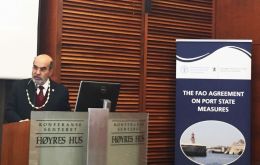
The Agreement on Port State Measures (PSMA) to Prevent, Deter and Eliminate Illegal, Unreported and Unregulated (IUU) Fishing, an international treaty aimed at stopping rogue fishing practices, gives the world “all the instruments necessary to achieve our goal,” FAO Director-General Jose Graziano da Silva said.
-
Tuesday, June 6th 2017 - 08:05 UTC
UN opens conference on the health of the world's oceans and seas
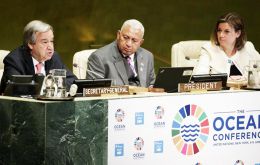
Opening a “game-changing” international conference on the health of the world’s oceans and seas, top United Nations officials urged on Monday coordinated global action to protect the planet. Speaking in the UN General Assembly Hall, Secretary-General Antonio Guterres cautioned Governments that unless they overcome short-term territorial and resource interests, the state of the oceans will continue to deteriorate.
-
Friday, June 2nd 2017 - 06:56 UTC
Value-added South Georgia Toothfish promoted at the world's largest food service trade show

Falkland Islands local company Georgia Seafoods Ltd joined food and beverage companies from 110 countries and all 50 states to exhibit at the National Restaurant Association’s annual trade show held in Chicago last weekend. The show is an essential destination for over 45,000 buyers representing the USA’s burgeoning food service sector.
-
Wednesday, May 31st 2017 - 06:16 UTC
Falklands Annual Address: a confident community's proud report planning for the future

Falklands' Acting Governor Alex Mitham looks back on the past year of activity for the Falkland Islands Government. The ceremony took place on Tuesday morning at the Court and Assembly Chambers during the Budget meeting of the Legislative Assembly
-
Friday, May 12th 2017 - 07:31 UTC
Falklands calamari squid first season has been “good”, Illex so far “pretty mediocre”
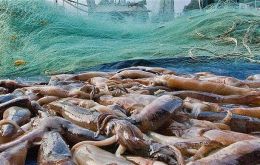
Falklands calamari squid catches in the Falkland Islands have been good this season reports Director of Natural Resources John Barton, and this is particularly good news bearing in mind Illex catches have been “pretty mediocre,” so far.
-
Wednesday, May 10th 2017 - 08:23 UTC
Falklands fisheries: Galicia fleet analyzes impact of Brexit
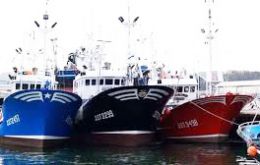
The future of Galician fishing after “Brexit” could generate “very harmful” measures in the field of fish imports from a fisheries that is as wealthy and important for the Galician fleet as that of the Falkland Islands.
-
Wednesday, May 10th 2017 - 05:39 UTC
Galicia will receive Euro 100 million to promote the seafood canning industry
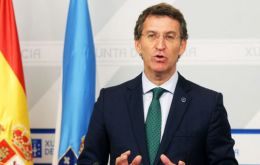
The president of the Government of the Spanish region of Galicia, Alberto Núñez Feijoo, announced a strategic plan for the canning industry that will consolidate the sector in the gourmet markets and maintain Galicia as world leader in the field.
-
Monday, May 8th 2017 - 22:05 UTC
A third of fish catches in worlds' oceans is unreported, claims Canadian report

A scientific research from the University of British Columbia (UBC)’s “The Sea Around Us Project”, indicates that nearly a third of fish caught in the world's oceans goes unreported. The scientists carrying out the analysis found that while as much as 120 million tons were fished from the oceans in 2015, the United Nations’ official capture reports revealed that in 81.2 million tons were harvested from the ocean, CBC reported.
-
Thursday, April 20th 2017 - 01:57 UTC
Punta Arenas plans to seat a major Antarctica scientific research hub
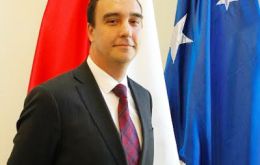
Chile will build the International Antarctic Center in the southern city of Punta Arenas, meant to become the entering point to the white continent for the world. The Governor of the Magellan region and the Chilean Antarctic, Jorge Flies stated this week that there were 35 projects developing in his jurisdiction, in three important areas.
-
Wednesday, April 12th 2017 - 10:27 UTC
Chilean salmon sold in Buenos Aires revealed high contents of antibiotic residue

A study performed by the Institute of Technology of UADE Foundation found that 66% of the salmon fillets imported from Chile that are marketed in the fish farms of the City of Buenos Aires contain remains of antibiotics “that can affect the health of those who consume it ”.
